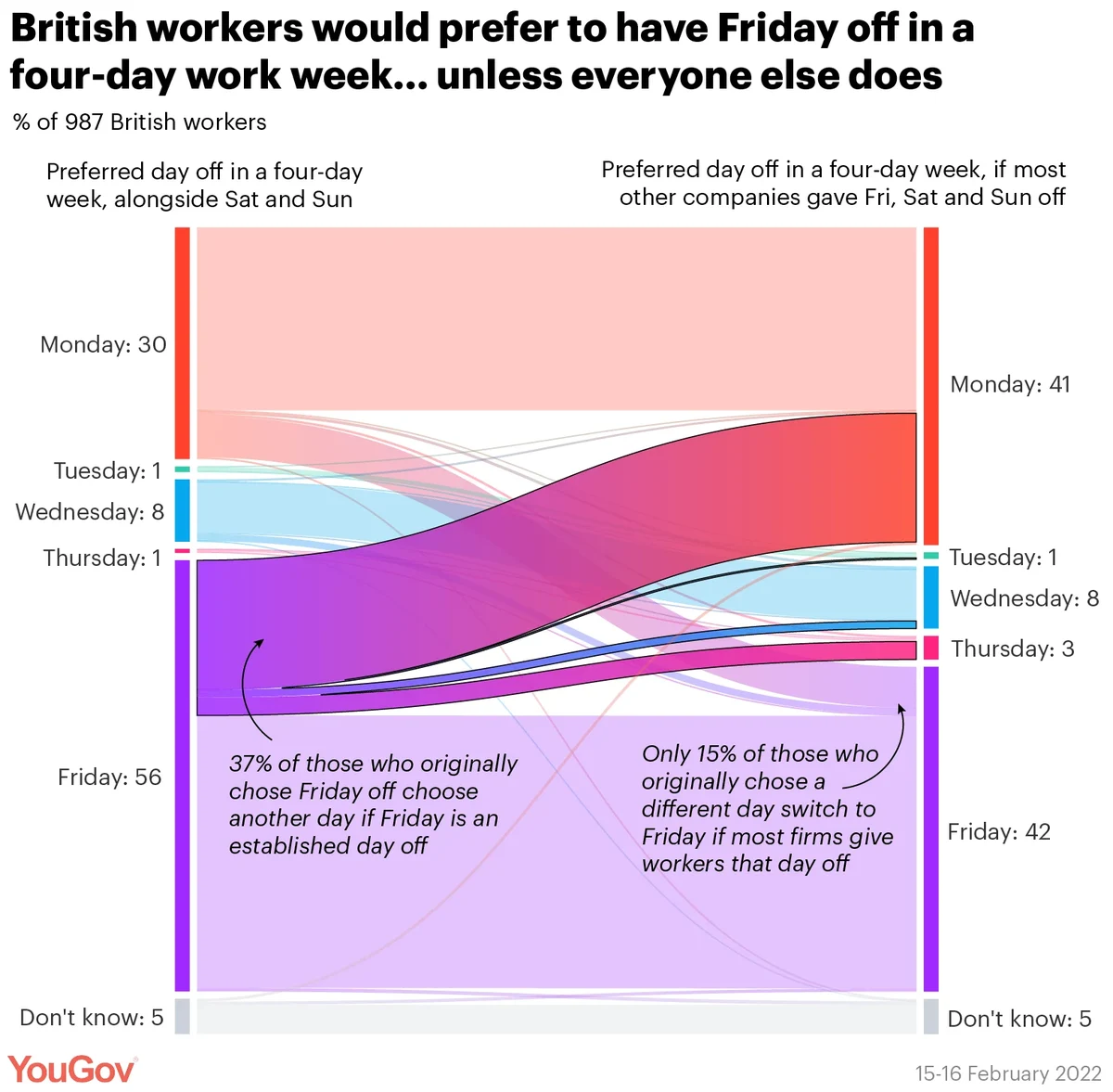Supporters of making the switch to a four-day working week claim that such a move would raise worker morale, reduce stress and risk of burnout, and improve work-life balance, all without sacrificing productivity.
Several countries, including Iceland, have trialled a four-day week, and it was announced recently that the UK is following suit with its own four-day work week pilot scheme.
YouGov has previously reported high levels of support among Britons for a four-day week, so long as it didn’t leave people worse off.
But if Britain’s industries move to a four-day week, which extra day would working Britons choose to have off work?
TGIF: half of Britons would pick Friday as their extra day off
In the event they were working full-time Monday to Friday and were moved to a four-day week with their choice of weekday off, the vast majority of working Britons (86%) would choose a day that gives them a three-day weekend.
Friday is the more popular choice, with 56% of workers choosing it as their day off, compared to 30% who plan to beat the Monday blues by doing away with Monday workdays altogether.
One in 12 workers (8%) would split the week in half by choosing to have Wednesdays off for a mid-week rest. Hardly anyone opted for Tuesdays (1%) or Thursdays (1%) off, and the final 5% are unsure.
Many working Britons would prefer to have a day off while everyone else is at work
Depending on what you do with your weekends, it can be frustrating to have Saturdays and Sundays off when most people are also off work. The shops are busy, the traffic is heavy, and it’s hard to get a bit of peace and quiet in a public space. So if it was the norm for everyone else to have Friday off in a four-day week, would working Britons still choose to have Fridays off?
If a four-day work week is implemented nationwide, and the majority of companies chose Friday as the extra day off alongside Saturday and Sunday, the percentage of working Britons who would then subsequently choose Friday as their day off falls from 56% to 42%.

At the same time, the 30% of workers who would originally have chosen Monday increases to 41%, making Monday and Friday effectively tied for first place in this scenario.
See full results here







